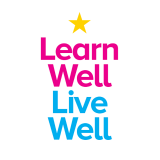Promoting British Values at West Earlham Infant and Nursery School
The government set out its definition of British values in the 2011 Prevent Strategy, and the Prime Minister reiterated these values in 2014. The Government states that the core values are:
- Democracy
- The rule of law
- Individual liberty
- Mutual respect
- Tolerance of those with different faiths and belief
At West Earlham Infant and Nursery School (WEINS) we are committed to promoting fundamental British values which underpin a modern, civilised society of which we can be proud. We recognise the multi-cultural, multi faith and ever-changing nature of the United Kingdom and understand the vital role we have in ensuring that groups and individuals within the school are protected.
At the heart of these values lie good relationships, in which staff, children and families work together towards common goals. At WEINS these values are both integral and reinforced regularly.
Our school follows policies regarding equal opportunities, which guarantee that any discrimination against any individual or group, regardless of faith, ethnicity, gender, sexuality, political beliefs etc will be rigorously challenged. We take our duty to prevent victimisation of any individual or groups very seriously. This is communicated both informally and formally in or ethos, on our documentation and in letters and publications.
Our Behaviour for Learning policy and associated policies promote good behaviour and identifies how unacceptable behaviour is managed. This is so that all children begin to understand and learn the skills and concept of respect, appropriate to their stage of development. They learn the impact their conduct and attitudes have on both their own, and others progress and learning. This is embedded throughout the school.
Below are further examples of when British values are shared in WEINS:
Curriculum
Our curriculum prepares students for life in British Society. It includes:
- class names from trees found in locality with children learning about them
- developing the understanding and use of money
- effective reading and writing skills where children learn by heart and to read and innovate many traditional stories and poems that are part of our literacy heritage
- how to communicate with each other valuing their own dialect but developing understanding of how and when to use standard English
- historical curriculum themes include significant British figures i.e. Edith Cavell
- geographical curriculum themes include learning about the UK and knowing about the City of Norwich
- through PSHE/RHE and day to day routines children learn about relationships, how to strive to be a self improving individual, the concept of trust, how to resolve conflict, about their right to feel safe and what to do if they don’t and about the community of work and what it means to belong to a community and how we contribute i.e. Litter pick.
- through Religious Studies children learn about Christian faith and the similarities and differences between this and other major world faiths, teaching tolerance, respect, curiosity and understanding about beliefs different to their own
- the PE curriculum provides the opportunity to learn about fair play, sportsmanship, rules and the idea of health to be a responsible citizenship
- School visits and events help the children to understand their locality and some of the key aspects of our country and culture i.e. coastal areas, farms, theatre visits, church visits, charity events, Sports days
- Through our school meals children learn about some food traditions i.e. ‘Fishy Friday’, Easter food gifts, roast dinners
Acts of collective worship/ whole school assembly/performances
Our assemblies uphold traditional values of Community, Honesty, Hope, Trust and Joy all of which help us to become responsible British citizens. They are based on mutual respect. New ideas are explored and their understanding of these ideas are followed in class as PSHE/RHE or Religious Studies. In assemblies we celebrate:
- British traditions
- Children as good role models
- Easter and Christmas traditions and other festivals from different faiths
- Significant historical anniversaries/events i.e. Remembrance Day
Democracy, Justice and Pupil Voice
Children form class rules together at the beginning of each year. The implementation of the behaviour policy ensures that children understand that there actions have an impact on others and the environment and there are times that there are consequences for our actions, both negative and positive.
We use a restorative justice approach to resolve issues and this approach is used when conflict arises with families.
At our school we gather the views of children in a range of different ways including school council. Teachers and staff find out what the views of the children are about the learning and curriculum. Children make decisions about resources, celebrations and rewards to help them understand majority views including voting for a story/poem in class. Children are encouraged to talk about big events that happen in our immediate neighbourhood and further afield to give them a sense of belonging.


